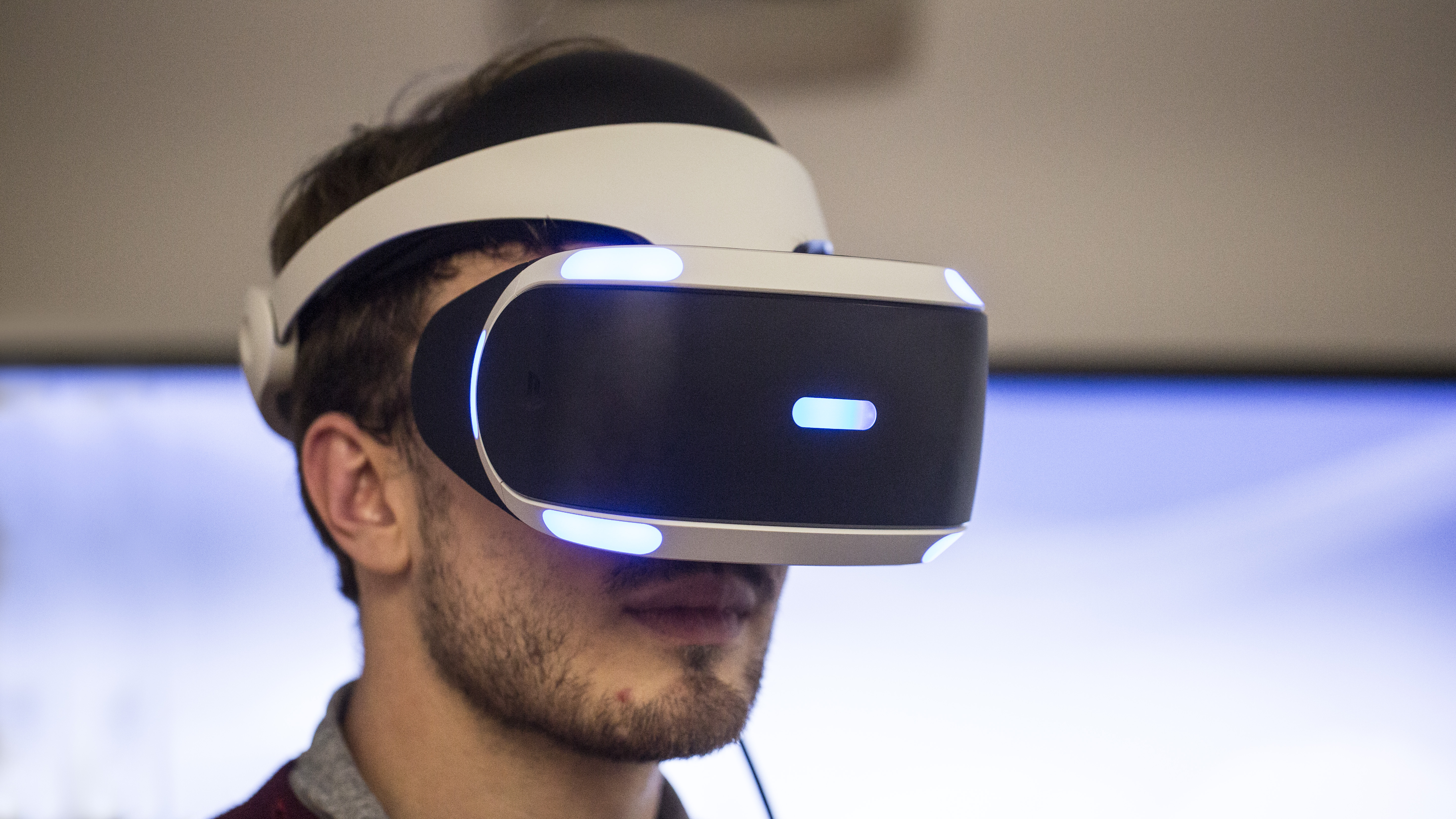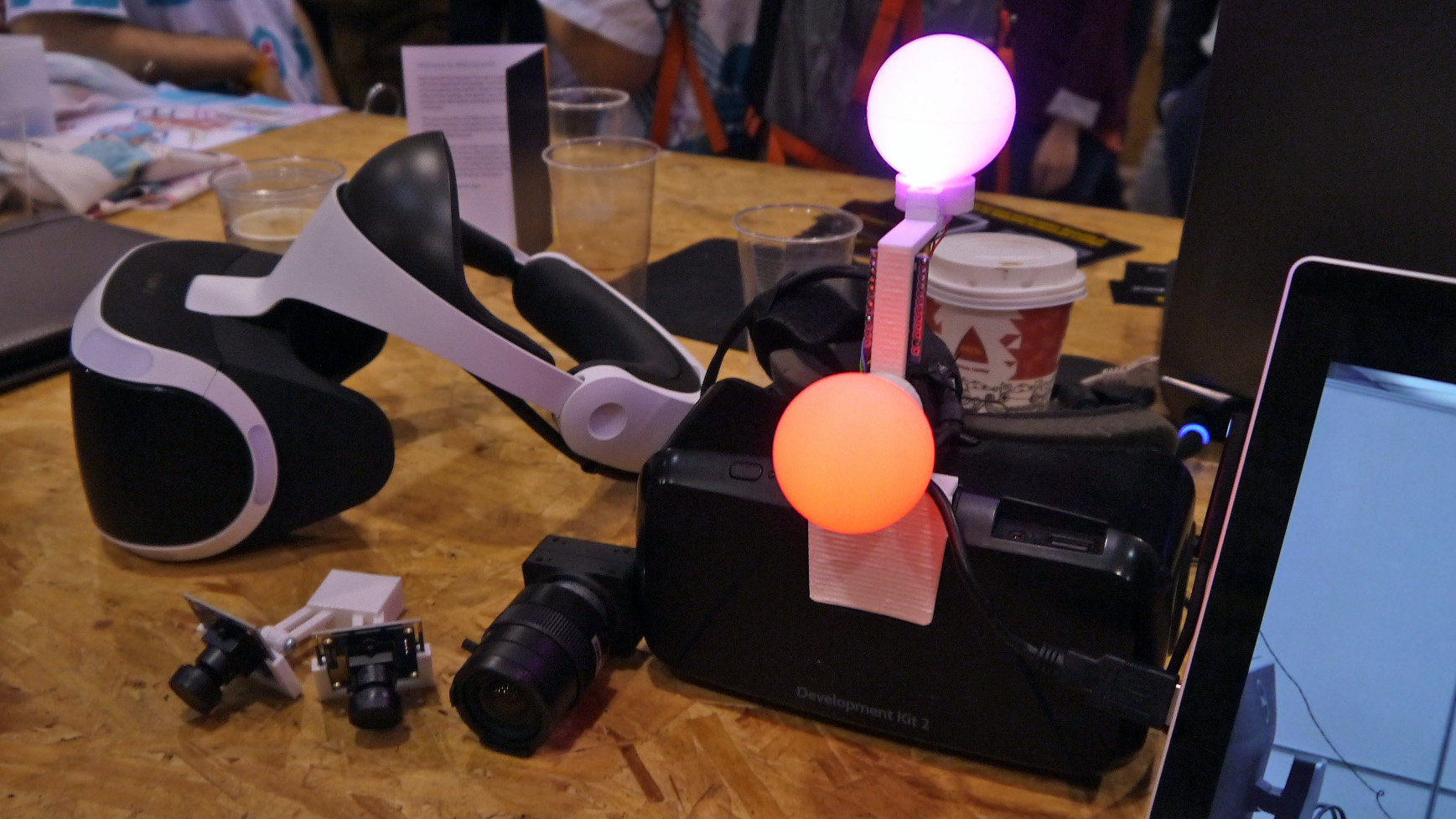Would you visit a VR arcade that’s three times bigger than Vive’s play space?
Massively Multiplayer Offline Game

Sign up for breaking news, reviews, opinion, top tech deals, and more.
You are now subscribed
Your newsletter sign-up was successful
100 square meters of pure VR enjoyment. You’re not going to get that at home.
VR gaming is still in its infancy, but with the likes of the Oculus Rift, PlayStation VR and HTC Vive starting to find their way into people’s homes there’s going to be the inevitable issue of the space you have available to play in.
It's one of the biggest limitations for fully immersive virtual reality, as being able to physically walk around your VR world further enhances the experience.
These more static experiences at home are still excellent – we’ve had countless happy adventures in the world of VR – but there’s always that nagging voice in the back of your mind urging you to really explore the virtual environment.
If only we could run off and interact with elements that aren't in our immediate vicinity…
The commonly recommended maximum play space for the HTC Vive and its motion-tracking cameras is 15’ x 15’ (around 4.5m x 4.5m) – that’s okay, but you can still feel penned into your virtual reality box.
The good news is that there are firms working on large-scale VR gaming, and we met SplitVR at Web Summit 2016 in Lisbon to find out what possibilities lay before us.
Sign up for breaking news, reviews, opinion, top tech deals, and more.
---
TechRadar: So, tell us about SplitVR.
SplitVR: Split VR is a virtual reality system that can cover hundreds of square meters, making large-area VR games or simulations possible.
TR: Just how big are we talking?
SVR: Theoretically there’s no upper limit to the technology, but the bigger you go the more kit you’ll need.
TR: That sounds cool. How does it work?
SVR: Cameras are mounted to the roof of the play space, with four cameras required for each 25-meter square section of the floor. The cameras then track the movement of the light sensors on the remote and headset to pinpoint your location.
During development we’ve been using the Oculus Rift Development Kit with modified PlayStation Move controllers, but with the arrival of Playstation VR the firm is going to shift focus to Sony’s headset, as it already has the light sources built in – which will play nicely with the SplitVR cameras.

TR: With multiple users wearing the headset each day, how do you keep the headsets hygienic?
SVR: The headsets will be cleaned after each player. One of the advantages of shifting to the PlayStation VR headset is the rubber pads it has, which are easier to clean with cleaning fluid than the foam pads found on rival headsets.
TR: What games are available?
SVR: At the moment we have two games. The first is a two-minute simulation of a Japanese garden, which you can literally walk around and explore. The second is a shooting gallery, giving you a 360-degree play area with various targets dotted around the space.
TR: Is multiplayer possible?
SVR: Absolutely. We can support up to four players, and each player will be simulated in-game, so you can see where your friends are and avoiding walking into them!
TR: Don’t the headset cables get in the way?
SVR: They do, so at the moment we’re using backpack PCs to try and reduce the cable issue, although we think that in the next three years we could see wireless VR headsets with a low enough latency to provide a solid VR experience.
TR: Exciting times for sure. When will people be able to experience SplitVR?
SVR: We’re planning to open a Gaming Bar in Budapest come January 2017, which has a basement of around 100 square foot (25m x 25m) where we will offer a larger VR experience using SplitVR.
---
SplitVR will also look to license its large-space VR technology from 2017, in the hope that others will pick it up and create similar gaming spaces in locations around the world.
The future of the company is not yet set in stone though, as it’s looking for further investment to continue its growth.
Its game library also needs to be dramatically expanded, as two games – one of which is a two–minute simulation of a garden – won’t exactly have people queuing round the block to pay for the experience.
However, we are loving the sound of massive VR spaces with multiplayer capabilities – how much is a plane ticket to Hungry?
- Read our VR reviews: Oculus Rift | PlayStation VR | HTC Vive

John has been a technology journalist for more than a decade, and over the years has built up a vast knowledge of the tech industry. He’s interviewed CEOs from some of the world’s biggest tech firms, visited their HQs, and appeared on live TV and radio, including Sky News, BBC News, BBC World News, Al Jazeera, LBC, and BBC Radio 4.